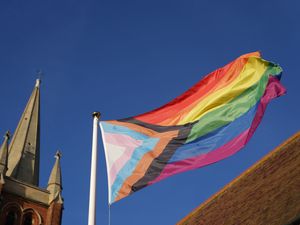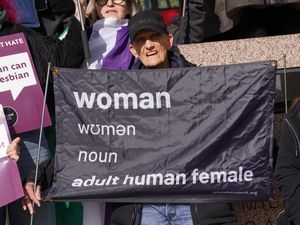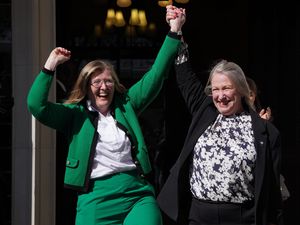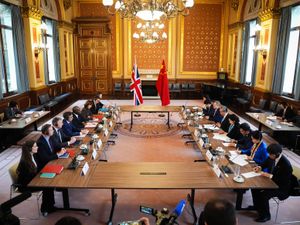Ministers focused on US trade deal, despite signal tariffs will go no lower
Kevin Hassett, a senior economic adviser to Donald Trump, suggested the blanket 10% tariff rate most countries now face was likely to be a ‘baseline’.
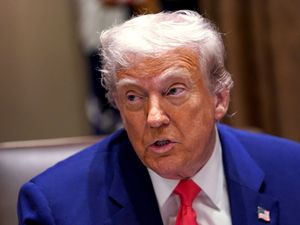
Ministers will continue to focus on getting a trade deal with the US, despite an adviser to Donald Trump claiming it would be “extraordinary” for any country to get a lower tariff rate than 10%.
Kevin Hassett, a senior economic adviser to the US President, suggested the blanket 10% tariff rate most countries now face was likely to be a “baseline”.
A snap announcement of a 90-day pause on reciprocal tariffs means traders importing to America from across the world now face the 10% rate – apart from China, which has been singled out for massive, prohibitive levies.
In the latest development of an emerging trade war, Beijing hiked tariffs on American goods to 125% on Friday to match those imposed by Washington.
When the UK was originally faced with the 10% rate on Mr Trump’s so-called “liberation day”, it was seen as favourable compared to others like the EU, which faced a 20% tariff.
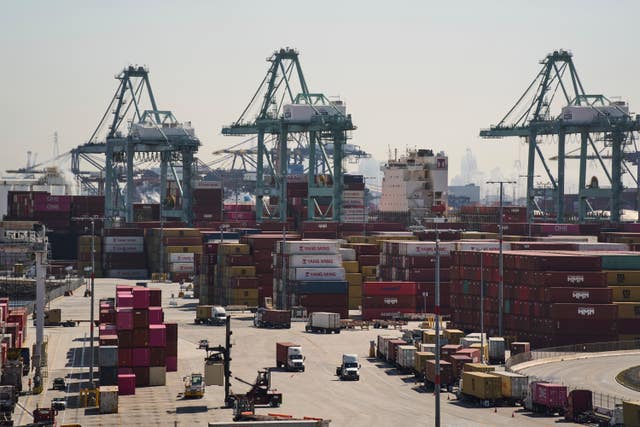
With the UK now in the same position as other nations, health minister Stephen Kinnock brushed aside suggestions the Government’s cautious approach to Mr Trump had yielded no results.
Asked if the UK was losing hope of a deal, he told Sky News: “Things change all the time. So, I think it’s best for us to stay focused on the fact that we have that objective of getting a trade deal with the United States.
“Johnny Reynolds (the Business Secretary) and the Prime Minister and other colleagues are very focused on getting that deal.
“But, of course, we also have to be prepared for the eventuality that we don’t get it immediately, or that it takes some time to come, and what that means is we’ve got to build a United Kingdom that stands strongly on its own two feet.”
Trump adviser Mr Hassett had earlier told CNBC: “I think everybody expects that the 10% baseline tariff is going to be the baseline.
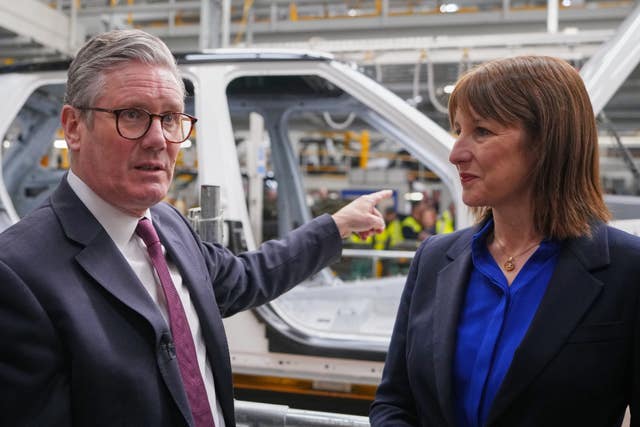
“It is going to take some kind of extraordinary deal for the President to go below there.”
He said the White House was in negotiations with around 20 countries and that two deals were almost closed.
UK and US negotiators are “talking all the time”, every day, Sir Keir Starmer said on Thursday.
He also denied the British approach to not retaliate to the US tariffs had resulted in no advantage for the UK.
“I don’t think having a strong relationship with the US has given us no advantage whatsoever,” he said.
The President’s surprise announcement of the 90-day pause to hefty tariffs imposed on some countries brought respite to battered stock markets across the globe, including London’s FTSE 100.
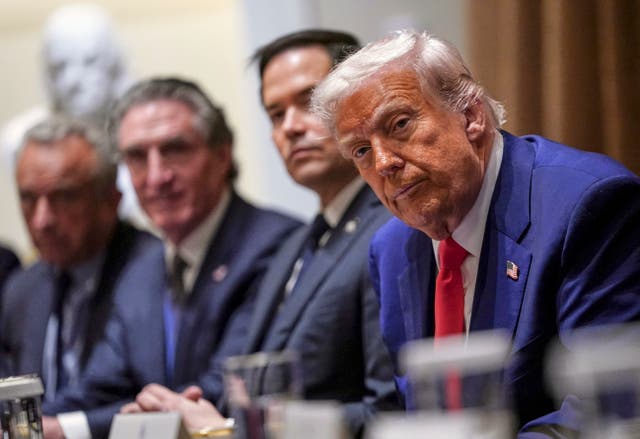
UK stock markets opened higher on Friday after the FTSE 100 index jumped about 3% on Thursday, while Europe’s main indexes were also climbing after traders warmly welcomed Mr Trump’s tariff pause.
But analysts said the gains were likely to reflect a short-lived relief rally, with concerns over US policy remaining and the prospect of all-out trade war between the US and China intensifying.
Meanwhile, investors flocked to so-called “safe haven” assets with currencies like the Swiss franc seeing a boost, while gold prices reached new highs.
Elsewhere, Sarah Breeden, a deputy governor of the Bank of England, told The Guardian that UK growth would be hit by “the most significant change in trade policy in a century”.
While the Government is seeking a trade agreement with the US to alleviate the impact of tariffs, they are also seeking to strengthen trade relations with other countries and are hoping to bolster industries at home with a new industrial strategy.
Imports of cars, steel and aluminium to America are all still subject to a 25% tariff.
The Liberal Democrats called on the Prime Minister to host a summit of world leaders to deal with the impact of the US tariffs.
The party leader, Sir Ed Davey, compared it with the British-led summit held to build support for Ukraine in the wake of Volodymyr Zelensky’s tumultuous appearance in the White House earlier this year.
Sir Ed said: “The Prime Minister should show the White House that we have alternatives by hosting a summit of world leaders and building an economic coalition of the willing.”
He added: “We need to show a united front and put pressure on the US to not just make this 90-day pause permanent, but remove their remaining tariffs on British businesses and our car industry completely.
“The best way to end this trade war for good is by standing tall with our allies, not cowering in the corner.”
Elsewhere, Reform UK leader Nigel Farage – who has often compared his party’s fortunes to Donald Trump’s – distanced himself from the president’s tariff climbdown.
Mr Farage told LBC: “I think Trump did too much too soon, rather like Liz Truss did a couple of years ago.
“I’ve never in my life before seen stock markets fall quickly and bond markets fall at the same time.”

